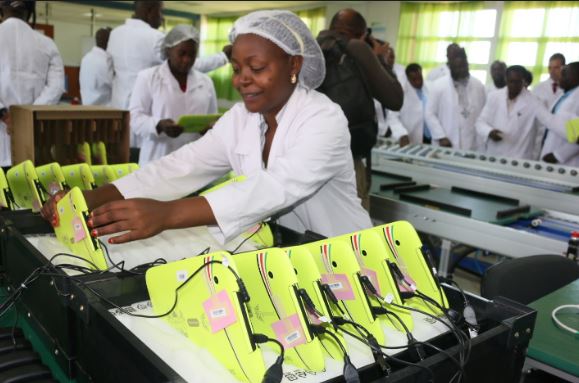
The devices will be distributed to over 11,000 private schools throughout the country and are expected to benefit over 1.8 million pupils.
NAIROBI, Kenya, Oct 18 – Kenya Private School Association has struck a Sh60 billion deal with Jomo Kenyatta University of Agriculture and Technology (JKUAT) for digital learning devices.
The Association’s National Chairperson Mutheu Kasanga says the deal will see JKUAT manufacture about four million devices for the next three years at a fixed price of Sh15, 000 per device.
The devices will be distributed to over 11,000 private schools throughout the country and are expected to benefit over 1.8 million pupils.
“We are not just having digital literacy for class one pupils; we are having it in all the classes to class eight,” Kasanga told Capital FM Business.
The Association is now negotiating with the government and local banks to create a Sh800 million fund for the private sector to borrow and sustain the program.
“We are also seeking a review of the taxes in the education sector, that has seen it become too expensive,” she said.
The Digital Learning Programme that was implemented by the government is targeted at learners in all public primary schools and is aimed at integrating the use of digital technologies in learning.
JKUAT has already started distributing devices under the government programme through the JKUAT-Positivo Consortium which was awarded the Digital Literacy Programme contract for tablets and PCs.
Each grade one student gets a Windows-based tablet loaded with the officially approved learning material, and the class teacher gets a laptop to control the classroom devices.
The school also gets a projector that can be used for class and other general purposes.
The consortium has distributed about 328,266 devices to 7,234 primary schools spread across 21 counties.
Teachers have also been trained to facilitate smooth implementation of the project.
So far, the Digital Literacy Programme in public primary schools has registered benefits since its launch in 2016 that include enhanced class attendance and learning, enhanced the ICT skills among teachers and communities and access to electricity as more schools get connected to the national power grid.


































